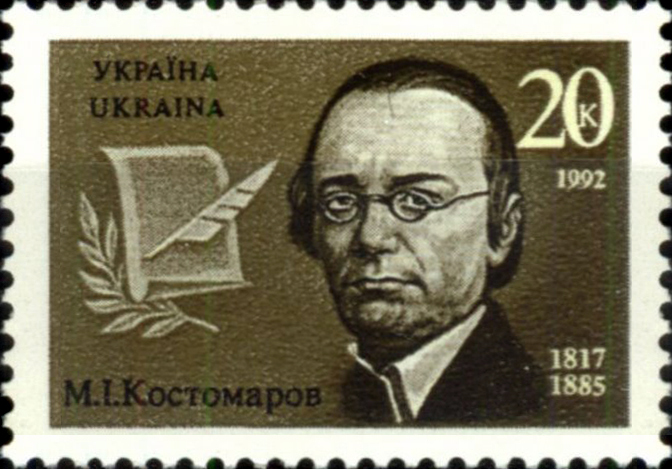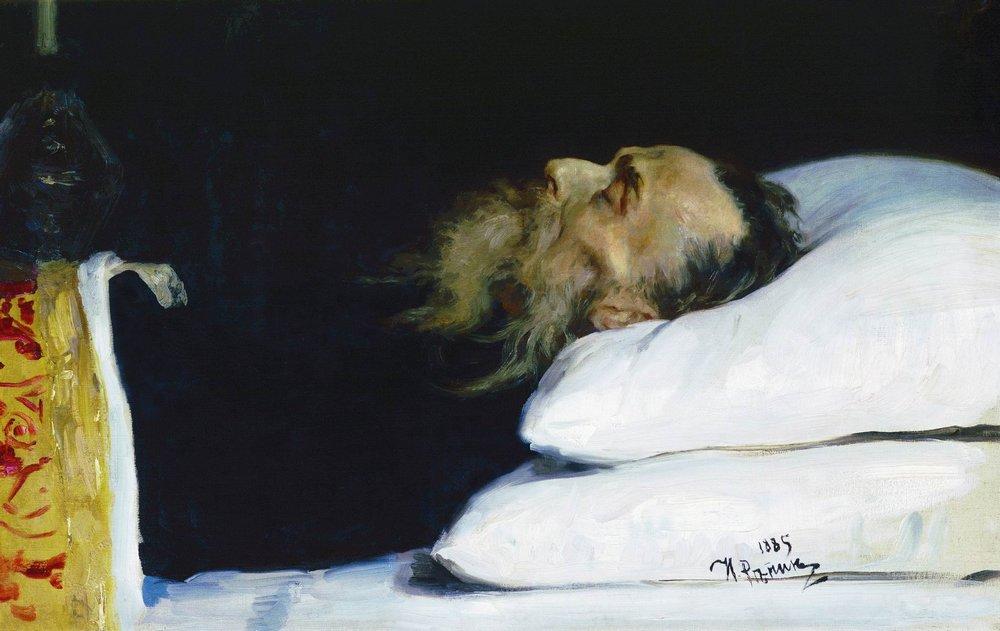|
Volkhovnik
The ''Volkhovnik'' (; ) was an Old Russian book of divinatory nature which included collections of signs and their interpretations. It appears in Russian lists of banned books dating from the 15th century onward. It is likely that the entry for the ''Volkhovnik'' in Russian lists is based on the ''Tabula prenostica Salomonis'' or a closely related text. No copies of any works with this title have survived, and it is known that most of the omens are widely recognized in Russian folk belief. Structure Modern researchers characterize ''Volkhovnik'' as a collection of signs and divination. Alexander AfanasyevProcesses about sorcerers and witches/ / Tree of Life: Selected articles / Preparation of the text and commentary. Yuri Medvedev, intro. article by B. P. Kirdan. - M.: Sovremennik, 1982. - 464 p.- (Publisher "Lovers of Russian literature"). — 75,000 copies.Mikhail SperanskyAbnegated Books// Orthodox Theological Encyclopedia / Ed. Nikolai Glubokovsky. - St. Petersburg: Appendix ... [...More Info...] [...Related Items...] OR: [Wikipedia] [Google] [Baidu] |
Volkhv
A volkhv or volhv (Cyrillic: Волхв; Polish: Wołchw, translatable as wiseman, wizard, sorcerer, magus, i.e. shaman, gothi or mage) is a priest in ancient Slavic religions and contemporary Slavic Native Faith. Among the Rus' Volkhvs are attested among the early Rus' people. Volkhvs were believed to possess mystical powers, particularly the ability to predict the future. The first literary reference to a volkhv occurs in the ''Primary Chronicle'' under the year 912; there, a volkhv predicts Prince Oleg's death. With the adoption of Christianity, the pagan priests came under persecution and sometimes tried to channel social discontent against the Christian church. The name of the divination book " Volkhovnik" comes from the term "''volkhv''". In modern Slavic priesthood In contemporary Slavic Native Faith, the volkhvs are those responsible for holding rites for worshipping the gods and leading communities and religious festivals. Volkhvs are the higher rank of the sacerdo ... [...More Info...] [...Related Items...] OR: [Wikipedia] [Google] [Baidu] |
Gromnik (divinatory Book)
Gromnik or Gromovnik (from ''grom'', meaning "thunder") is one of several astrological books that were in circulation in Russia and Serbia in the 15th and 16th centuries. A typical gromnik lists prognostications arranged by months (about the state of the weather, about future harvests, illnesses, wars, etc.) and drawn from such omens as thunder and earthquake. Sometimes notes “on the state of the moon right or hollow” are added to this work, indicating the significance of such signs at different times of the year. All surviving examples appear to have been created in Serbia. "Gromniks" contain forecasts about natural disasters, crop yields, the behavior of wild animals and social phenomena (epidemics, unrest, wars in different countries) depending on the appearance of thunder in each of the twelve lunar months of the year. Judging by the "Gromnik" from the manuscript of the RSL. Muses. No. 921, which reproduces the table of the movement of the sun according to the signs of the ... [...More Info...] [...Related Items...] OR: [Wikipedia] [Google] [Baidu] |
Fortune-telling
Fortune telling is the spiritual practice of predicting information about a person's life. Melton, J. Gordon. (2008). ''The Encyclopedia of Religious Phenomena''. Visible Ink Press. pp. 115–116. The scope of fortune telling is in principle identical with the practice of divination. The difference is that divination is the term used for predictions considered part of a religious ritual, invoking deities or spirits, while the term fortune telling implies a less serious or formal setting, even one of popular culture, where belief in occult workings behind the prediction is less prominent than the concept of suggestion, spiritual or practical advisory or affirmation. Historically, Pliny the Elder describes use of the crystal ball in the 1st century CE by soothsayers (''"crystallum orbis"'', later written in Medieval Latin by scribes as ''orbuculum''). Contemporary Western images of fortune telling grow out of folkloristic reception of Renaissance magic, specifically ass ... [...More Info...] [...Related Items...] OR: [Wikipedia] [Google] [Baidu] |
Nikolai Kostomarov
Mykola Ivanovych Kostomarov (; May 16, 1817 – April 19, 1885) or Nikolai Ivanovich Kostomarov () was one of the most distinguished Russian–Ukrainian historians, one of the first anti-Normanists, and the father of modern Ukrainian historiography. He was a professor of Russian history at the St. Vladimir University of Kiev and later at the St. Petersburg University, an Active State Councillor of Russia, an author of many books, including his biography of Bohdan Khmelnytsky, research on Stepan Razin, and his fundamental three-volume ''Russian history in the biographies of its most important figures'' (). Kostomarov was also known as one of the main figures of the Ukrainian national revival society best known as the Brotherhood of Saints Cyril and Methodius, which existed in Kiev from January 1846 to March 1847. Kostomarov was also a poet, ethnographer, pan-Slavist, and promoter of the so-called Narodnik movement in the Russian Empire. Historian His father was a Russian lan ... [...More Info...] [...Related Items...] OR: [Wikipedia] [Google] [Baidu] |
Early Modern Russian Literature
Early may refer to: Places in the United States * Early, Iowa, a city * Early, Texas, a city * Early Branch, a stream in Missouri * Early County, Georgia * Fort Early, Georgia, an early 19th century fort Music * Early B, stage name of Jamaican dancehall and reggae deejay Earlando Arrington Neil (1957–1994) * Early James, stage name of American singer-songwriter Fredrick Mullis Jr. (born 1993) * ''Early'' (Scritti Politti album), 2005 * ''Early'' (A Certain Ratio album), 2002 * Early Records, a record label Other uses * Early (name), a list of people and fictional characters with the given name or surname * Early effect, an effect in transistor physics * Early, a synonym for ''hotter'' in stellar classification See also * * The Earlies, a 21st century band * Earley (other) * Earlie Earlie is a masculine given name which may refer to: * Earlie Fires (born 1947), American jockey * Earlie Thomas (1945–2022), American National Football League player * Earlie End ... [...More Info...] [...Related Items...] OR: [Wikipedia] [Google] [Baidu] |
Medieval Russian Literature
In the history of Europe, the Middle Ages or medieval period lasted approximately from the 5th to the late 15th centuries, similarly to the post-classical period of World history (field), global history. It began with the fall of the Western Roman Empire and transitioned into the Renaissance and the Age of Discovery. The Middle Ages is the middle period of the three traditional divisions of Western history: classical antiquity, the medieval period, and the modern period. The medieval period is itself subdivided into the Early Middle Ages, Early, High Middle Ages, High, and Late Middle Ages. Population decline, counterurbanisation, the collapse of centralised authority, invasions, and mass migrations of tribes, which had begun in late antiquity, continued into the Early Middle Ages. The large-scale movements of the Migration Period, including various Germanic peoples, formed new kingdoms in what remained of the Western Roman Empire. In the 7th century, North Africa and the ... [...More Info...] [...Related Items...] OR: [Wikipedia] [Google] [Baidu] |
Witchcraft
Witchcraft is the use of Magic (supernatural), magic by a person called a witch. Traditionally, "witchcraft" means the use of magic to inflict supernatural harm or misfortune on others, and this remains the most common and widespread meaning. According to ''Encyclopedia Britannica'', "Witchcraft thus defined exists more in the imagination", but it "has constituted for many cultures a viable explanation of evil in the world". The belief in witches has been found throughout history in a great number of societies worldwide. Most of these societies have used Apotropaic magic, protective magic or counter-magic against witchcraft, and have shunned, banished, imprisoned, physically punished or killed alleged witches. Anthropologists use the term "witchcraft" for similar beliefs about harmful occult practices in different cultures, and these societies often use the term when speaking in English. Belief in witchcraft as malevolent magic is attested from #Ancient Mesopotamian religion ... [...More Info...] [...Related Items...] OR: [Wikipedia] [Google] [Baidu] |
Lunar Calendar
A lunar calendar is a calendar based on the monthly cycles of the Moon's phases ( synodic months, lunations), in contrast to solar calendars, whose annual cycles are based on the solar year, and lunisolar calendars, whose lunar months are brought into alignment with the solar year through some process of intercalationsuch as by insertion of a leap month. The most widely observed lunar calendar is the Islamic calendar. The details of when months begin vary from calendar to calendar, with some using new, full, or crescent moons and others employing detailed calculations. Since each lunation is approximately days, (which gives a mean synodic month as 29.53059 days or 29 days 12 hours 44 minutes and 3 seconds) it is common for the months of a lunar calendar to alternate between 29 and 30 days. Since the period of 12 such lunations, a lunar year, is 354 days, 8 hours, 48 minutes, 34 seconds (354.36707 days), lunar calendars are 11 to 12 day ... [...More Info...] [...Related Items...] OR: [Wikipedia] [Google] [Baidu] |
Moon
The Moon is Earth's only natural satellite. It Orbit of the Moon, orbits around Earth at Lunar distance, an average distance of (; about 30 times Earth diameter, Earth's diameter). The Moon rotation, rotates, with a rotation period (lunar day) that is synchronized to its orbital period (Lunar month#Synodic month, lunar month) of 29.5 Earth days. This is the product of Earth's gravitation having tidal forces, tidally pulled on the Moon until one part of it stopped rotating away from the near side of the Moon, near side, making always the same lunar surface face Earth. Conversley, the gravitational pull of the Moon, on Earth, is the main driver of Earth's tides. In geophysical definition of planet, geophysical terms, the Moon is a planetary-mass object or satellite planet. Its mass is 1.2% that of the Earth, and its diameter is , roughly one-quarter of Earth's (about as wide as the contiguous United States). Within the Solar System, it is the List of Solar System objects by ... [...More Info...] [...Related Items...] OR: [Wikipedia] [Google] [Baidu] |
Mykola Kostomarov
Mykola Ivanovych Kostomarov (; May 16, 1817 – April 19, 1885) or Nikolai Ivanovich Kostomarov () was one of the most distinguished Russian–Ukrainian historians, one of the first anti-Normanists, and the father of modern Ukrainian historiography. He was a professor of Russian history at the St. Vladimir University of Kiev and later at the St. Petersburg University, an Active State Councillor of Russia, an author of many books, including his biography of Bohdan Khmelnytsky, research on Stepan Razin, and his fundamental three-volume ''Russian history in the biographies of its most important figures'' (). Kostomarov was also known as one of the main figures of the Ukrainian national revival society best known as the Brotherhood of Saints Cyril and Methodius, which existed in Kiev from January 1846 to March 1847. Kostomarov was also a poet, ethnographer, pan-Slavist, and promoter of the so-called Narodnik movement in the Russian Empire. Historian His father was a Russian lan ... [...More Info...] [...Related Items...] OR: [Wikipedia] [Google] [Baidu] |
Alexander Afanasyev
Alexander Nikolayevich Afanasyev (; – ) was a Russian Slavist and ethnographer best known for publishing nearly 600 East Slavic and Russian fairy and folk tales, one of the largest collections of folklore in the world. This collection was not restricted to Great Russia, but included folk tales from what are now Ukraine and Belarus as well. The first edition of his collection was published in eight volumes from 1855 to 1867, earning him the reputation of being the Russian counterpart to the Brothers Grimm. Life Alexander Afanasyev was born in the town of Boguchar in the Voronezh Governorate of the Russian Empire (modern-day Voronezh Oblast of Russia) into a family of modest means. His mother Varvara Mikhailovna Afanasyeva came from common people. Alexander was her seventh child; she became very ill after giving birth and died by the end of the year. The children were raised by their father Nikolai Ivanovich Afanasyev, who had the rank of titular councillor and served as ... [...More Info...] [...Related Items...] OR: [Wikipedia] [Google] [Baidu] |
Zagovory
(singular ) is a form of verbal folk magic in East Slavs, Eastern Slavic Slavic folklore, folklore and Slavic mythology, mythology. Users of use incantations to enchant objects or people. Etymology The present-day Russian language, Russian word () corresponds to the English word ''Evocation, conjuration'', which once meant a 'conspiracy, plot, act of plotting'. ('what is performed with speech') originates from Folklore of Russia, Russian folklore. So does the term (), with its prefix of initiation ''na-'' and the root ''-govor'' ('speech'), meaning 'what is launched with speech'. Their slight difference in sense can be seen in constructions like " from Maleficium (sorcery), maleficium"/"from bullets" (defensive, Apotropaic magic, apotropaic aspect) and ''nagovory onto water'' (to make it "healing"). The latter phrase seems to reflect a more offensive action. The Ukrainian language, Ukrainian () and Belarusian language, Belarusian () are semantically identical to the R ... [...More Info...] [...Related Items...] OR: [Wikipedia] [Google] [Baidu] |





